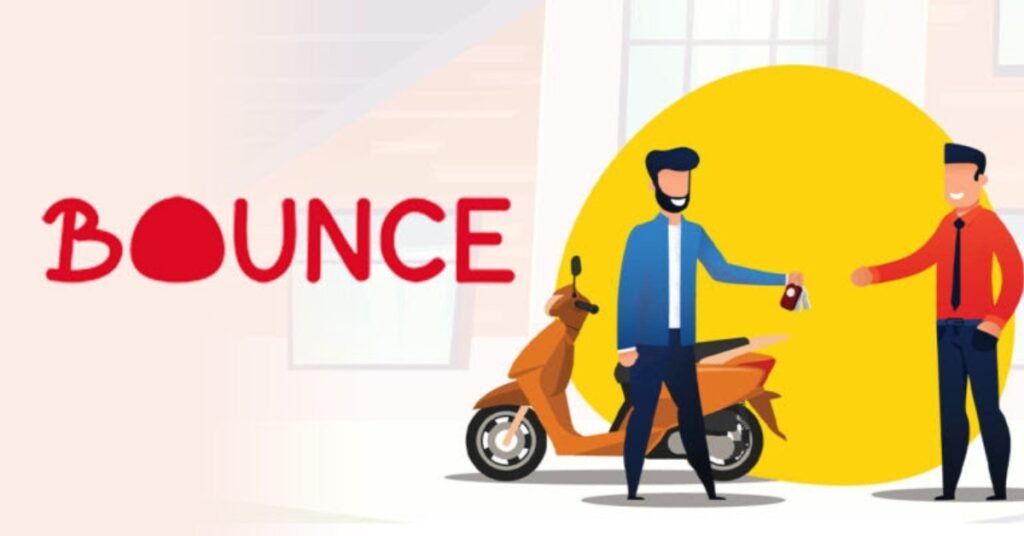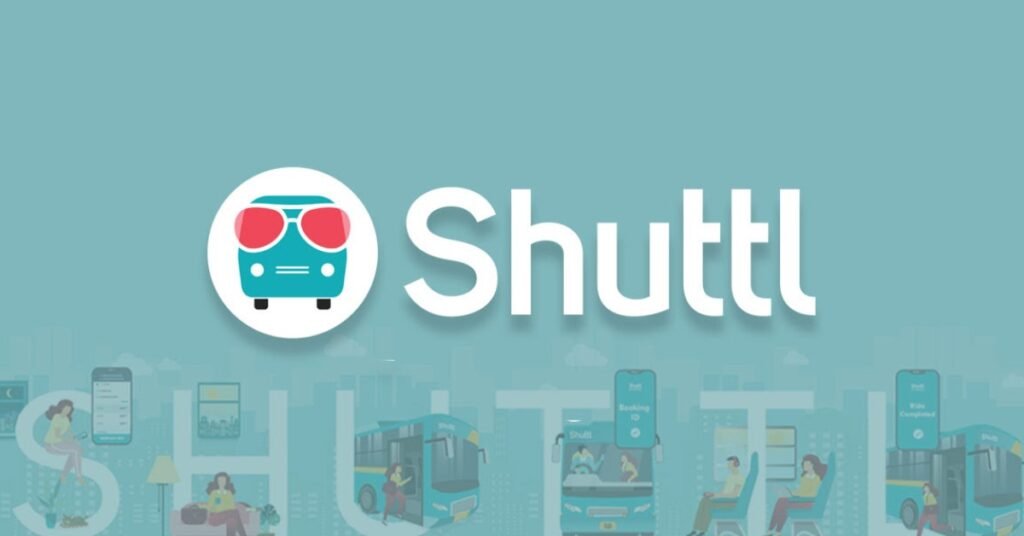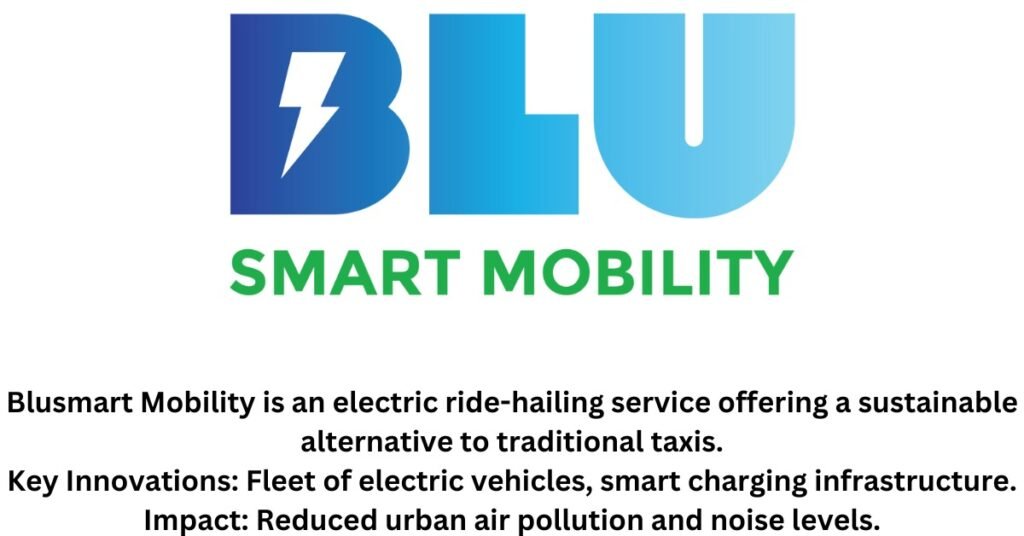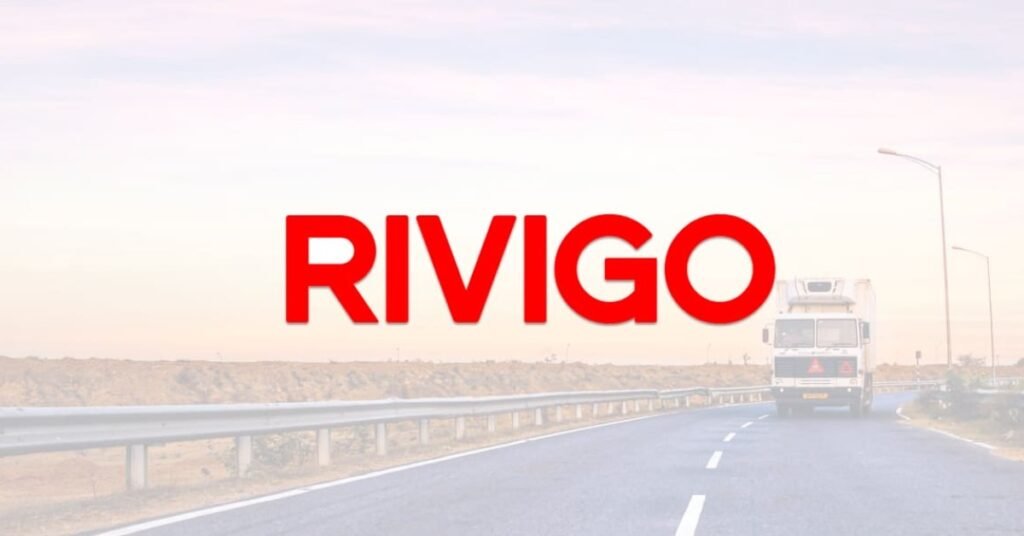Top 10 Mobility Startups in India mobility sector is undergoing a revolutionary transformation driven by startups that blend technology, innovation, and sustainability. These startups are reshaping the way people and goods move, addressing challenges related to congestion, pollution, and inefficiency. Here’s a detailed look at the top 10 mobility startups in India
Table of Contents
1. Ola Cabs

Founded in 2010 by Bhavish Aggarwal and Ankit Bhati, Ola Cabs has become one of India’s largest ride-hailing services. Ola operates in over 250 cities in India, offering a range of services from economic rides to luxury travel. The company is also investing in electric vehicles (EVs) through its Ola Electric subsidiary, aiming to bring one million EVs on Indian roads by 2025.
| Attribute | Details |
|---|---|
| Founded | 2010 |
| Founders | Bhavish Aggarwal and Ankit Bhati |
| Headquarters | Bengaluru, Karnataka |
| Services Offered | Ride-hailing (economic to luxury), Ola Auto, Ola Bike, Ola Rentals, and Ola Outstation |
| Key Markets | Over 250 cities in India |
| Innovations | Ola Electric (electric vehicle initiative) |
| Funding | $4.3 billion from investors like SoftBank, Tencent, and Sequoia Capital |
| Website | ola.in |
2. Uber India

Uber, though a global giant, has localized its services effectively in India since its launch in 2013. It has expanded its offerings to include Uber Moto, Uber Auto, and even intercity travel options. Uber has also partnered with local entities to bolster its presence in smaller towns and cities, making it a significant player in the Indian mobility landscape.
| Attribute | Details |
|---|---|
| Founded | 2013 (India launch) |
| Founders | Travis Kalanick and Garrett Camp (Global Founders) |
| Headquarters | San Francisco, California, USA (Global HQ) |
| Services Offered | Uber X, Uber XL, Uber Auto, Uber Moto, Uber Rentals, Uber Intercity |
| Key Markets | Major cities including Delhi, Mumbai, Bengaluru, Hyderabad, and more |
| Innovations | Safety features, Uber for Business, and integration with local public transport |
| Funding | $24.2 billion globally from investors like SoftBank, Benchmark, and First Round Capital |
| Website | uber.com/in/en/ |
3. Bounce

Founded in 2014 by Vivekananda Hallekere, Anil G, and Varun Agni, Bounce offers a unique dockless scooter-sharing service. Users can pick up and drop off scooters at any location, making it extremely convenient for short urban commutes. Bounce is also making strides in the EV sector, with plans to convert its entire fleet to electric scooters.
| Attribute | Details |
|---|---|
| Founded | 2014 |
| Founders | Vivekananda Hallekere, Anil G, and Varun Agni |
| Headquarters | Bengaluru, Karnataka |
| Services Offered | Dockless scooter-sharing service |
| Key Markets | Major Indian cities including Bengaluru, Hyderabad, and Vijayawada |
| Innovations | Dockless model, electric scooter fleet |
| Funding | $200 million from investors like Sequoia Capital India, Accel Partners, and Chiratae Ventures |
| Website | bounceshare.com |
4. Yulu

Yulu, founded by Amit Gupta, RK Misra, and Hemant Gupta in 2017, focuses on micro-mobility solutions with a fleet of electric bicycles and scooters. Yulu aims to reduce traffic congestion and pollution in cities by providing a green and affordable mode of transport. The startup has also collaborated with various city administrations to expand its network.
| Attribute | Details |
|---|---|
| Founded | 2017 |
| Founders | Amit Gupta, RK Misra, and Hemant Gupta |
| Headquarters | Bengaluru, Karnataka |
| Services Offered | Electric bicycles and scooters for micro-mobility |
| Key Markets | Bengaluru, Pune, Mumbai, and Delhi |
| Innovations | IoT-enabled smart bicycles and scooters, partnerships with city administrations |
| Funding | $19.9 million from investors including Blume Ventures, 3one4 Capital, and Wavemaker Partners |
| Website | yulu.bike |
5. Rapido

Rapido, launched in 2015 by Aravind Sanka, Pavan Guntupalli, and Rishikesh SR, is India’s largest bike taxi service. Rapido allows commuters to book bike rides for quick and economical travel through congested city roads. With a strong presence in over 100 cities, Rapido is enhancing last-mile connectivity across urban India.
| Attribute | Details |
|---|---|
| Founded | 2015 |
| Founders | Aravind Sanka, Pavan Guntupalli, and Rishikesh SR |
| Headquarters | Bengaluru, Karnataka |
| Services Offered | Bike taxi service |
| Key Markets | Over 100 cities in India including Bengaluru, Delhi, Hyderabad, and Chennai |
| Innovations | Bike-pooling, last-mile connectivity solutions |
| Funding | $130 million from investors like Westbridge Capital, Nexus Venture Partners, and Integrated Capital |
| Website | rapido.bike |
6. Vogo

Vogo, co-founded by Anand Ayyadurai and Sanchit Mittal in 2016, offers scooter rental services aimed at providing first and last-mile connectivity. Vogo’s docked model ensures that scooters are always available at designated spots, reducing the hassle of vehicle availability and maintenance. The startup has seen substantial growth, particularly in Tier-2 cities.
| Attribute | Details |
|---|---|
| Founded | 2016 |
| Founders | Anand Ayyadurai and Sanchit Mittal |
| Headquarters | Bengaluru, Karnataka |
| Services Offered | Scooter rental services |
| Key Markets | Bengaluru, Hyderabad, and other Tier-2 cities |
| Innovations | Docked scooter rental model |
| Funding | $100 million from investors including Ola, Matrix Partners India, and Stellaris Venture Partners |
| Website | vogo.in |
7. Shuttl

Shuttl, established in 2015 by Amit Singh and Deepanshu Malviya, is a bus-aggregation platform that provides comfortable and affordable office commute options. Shuttl leverages technology to optimize routes and ensure timely and efficient travel. It is particularly popular in metro cities like Delhi, Gurgaon, and Bengaluru.
| Attribute | Details |
|---|---|
| Founded | 2015 |
| Founders | Amit Singh and Deepanshu Malviya |
| Headquarters | Gurugram, Haryana |
| Services Offered | Bus-aggregation platform for office commute |
| Key Markets | Delhi, Gurgaon, Noida, and Bengaluru |
| Innovations | Route optimization, real-time tracking, and seat reservation |
| Funding | $50 million from investors like Amazon Alexa Fund, Dentsu Ventures, and Times Internet |
| Website | shuttl.com |
8. Zoomcar

Founded in 2013 by Greg Moran and David Back, Zoomcar offers self-drive car rental services. The startup provides a diverse range of vehicles on rent, from compact cars to luxury SUVs. Zoomcar’s flexible rental plans and tech-driven approach have made it a go-to option for personal and business travel.
| Attribute | Details |
|---|---|
| Founded | 2013 |
| Founders | Greg Moran and David Back |
| Headquarters | Bengaluru, Karnataka |
| Services Offered | Self-drive car rental services |
| Key Markets | Major Indian cities including Bengaluru, Delhi, Mumbai, Chennai, and Pune |
| Innovations | Flexible rental plans, wide range of vehicle options |
| Funding | $100 million from investors like Mahindra & Mahindra, Ford Smart Mobility, and Sequoia Capital India |
| Website | zoomcar.com |
9. BluSmart

BluSmart, co-founded by Anmol Singh Jaggi and Puneet Singh Jaggi in 2019, is India’s first all-electric ride-hailing service. BluSmart aims to create a sustainable urban mobility ecosystem by providing reliable, zero-emission rides. The company also emphasizes driver welfare and passenger safety, setting it apart in the ride-hailing market.
| Attribute | Details |
|---|---|
| Founded | 2019 |
| Founders | Anmol Singh Jaggi and Puneet Singh Jaggi |
| Headquarters | Gurugram, Haryana |
| Services Offered | All-electric ride-hailing service |
| Key Markets | Delhi-NCR |
| Innovations | Zero-emission rides, focus on driver welfare and passenger safety |
| Funding | $50 million from investors like JITO Angel Network, Mayfield Fund, and Inflection Point Ventures |
| Website | blusmart.com |
10. Rivigo

Rivigo, founded in 2014 by Deepak Garg and Gazal Kalra, is transforming the logistics sector with its innovative relay trucking model. By rotating drivers every few hundred kilometers, Rivigo ensures faster and safer delivery of goods while improving drivers’ work conditions. This model has significantly enhanced the efficiency and reliability of long-haul trucking in India.
| Attribute | Details |
|---|---|
| Founded | 2014 |
| Founders | Deepak Garg and Gazal Kalra |
| Headquarters | Gurugram, Haryana |
| Services Offered | Logistics and relay trucking |
| Key Markets | Pan-India |
| Innovations | Relay trucking model, technology-driven logistics solutions |
| Funding | $225 million from investors including Warburg Pincus, SAIF Partners, and Elevation Capital |
| Website | rivigo.com |
The Indian mobility sector is vibrant and rapidly evolving, thanks to the innovative approaches of these startups. From electric vehicles and bike taxis to self-drive cars and bus shuttles, these companies are addressing the unique challenges of urban transportation. By leveraging technology and sustainable practices, they are paving the way for a future where mobility is efficient, affordable, and environmentally friendly.
FAQs on Top Mobility Startups in India
1. What are mobility startups?
Mobility startups are companies that develop innovative solutions to improve the movement of people and goods. They often leverage technology to provide efficient, cost-effective, and sustainable transportation options.
2. How do mobility startups benefit urban areas?
Mobility startups help reduce traffic congestion, lower pollution levels, and provide convenient transportation options. They enhance last-mile connectivity, making commuting easier and more efficient in urban areas.
3. What is the significance of electric vehicles (EVs) in mobility startups?
EVs are crucial for reducing carbon emissions and dependence on fossil fuels. Many mobility startups, such as Ola Electric and BluSmart, focus on EVs to promote sustainable transportation solutions.
4. How do bike-sharing and scooter-sharing services work?
Bike-sharing and scooter-sharing services allow users to rent bikes or scooters for short periods. Users can pick up a vehicle from a designated spot and drop it off at another, facilitating easy and flexible short-distance travel.
5. What is the difference between ride-hailing and ride-sharing?
Ride-hailing services (like Ola and Uber) involve booking a private ride from a specific location to a destination. Ride-sharing services involve sharing a ride with others traveling in the same direction, reducing costs and environmental impact.
6. What is last-mile connectivity?
Last-mile connectivity refers to the final leg of a journey, from a transportation hub to the final destination. Mobility startups improve last-mile connectivity by providing easy access to transportation options like scooters, bikes, and shared rides.
7. How do self-drive car rental services operate?
Self-drive car rental services, like Zoomcar, allow users to rent a car for a specific duration. Users can drive the car themselves, providing flexibility and convenience for personal or business travel.
8. What is a relay trucking model in logistics?
The relay trucking model involves rotating drivers every few hundred kilometers, ensuring continuous movement of trucks without long breaks. This model, used by Rivigo, improves delivery speed and safety and enhances driver working conditions.
9. Are mobility startups safe to use?
Yes, most mobility startups prioritize safety by implementing robust verification processes, safety features in their apps, and regular vehicle maintenance. They also provide customer support to address any safety concerns.
10. How do mobility startups contribute to the economy?
Mobility startups create jobs, promote technological innovation, and improve the efficiency of transportation networks. They contribute to economic growth by enhancing connectivity and reducing transportation costs for businesses and individuals.
11. What role do city administrations play in supporting mobility startups?
City administrations often collaborate with mobility startups to improve urban transportation infrastructure. They may provide regulatory support, designate parking spaces, and promote the use of sustainable transportation options.
12. How can users access services provided by mobility startups?
Users can access these services through mobile apps or websites. Most startups have user-friendly platforms where customers can book rides, rent vehicles, or find the nearest bike or scooter.
13. What are some challenges faced by mobility startups in India?
Mobility startups face challenges such as regulatory hurdles, infrastructure limitations, and high competition. Additionally, ensuring vehicle availability and managing operational costs are significant concerns.
14. How do mobility startups address environmental concerns?
Many mobility startups focus on eco-friendly solutions like electric vehicles and shared rides to reduce carbon footprints. They also promote the use of bicycles and scooters, which are less polluting than traditional vehicles.
15. What are the future trends in the mobility sector?
Future trends include increased adoption of electric and autonomous vehicles, expansion of shared mobility services, and integration of advanced technologies like AI and IoT to enhance operational efficiency and user experience.
ALSO READ:
Top 10 HealthTech Startups in India
Top 10 Fintech Startups in India
Top 10 Agritech Startups in Indian
Top 10 CleanTech Startups in India
Top 10 InsurTech Startups in India
Top 10 LegalTech Startups in India
Top 10 GovTech Startups in India
Top 10 RetailTech Startups in India
Top 10 PropTech Startups in India
Top 10 FoodTech Startups in India
Top 10 Edutech Startups in India
Top 10 TravelTech Startups in India
Top 10 Mobility Startups in India
Last Updated on: Friday, July 12, 2024 4:57 pm by Outlook News Team | Published by: Outlook News Team on Thursday, June 13, 2024 2:35 pm | News Categories: Startup


